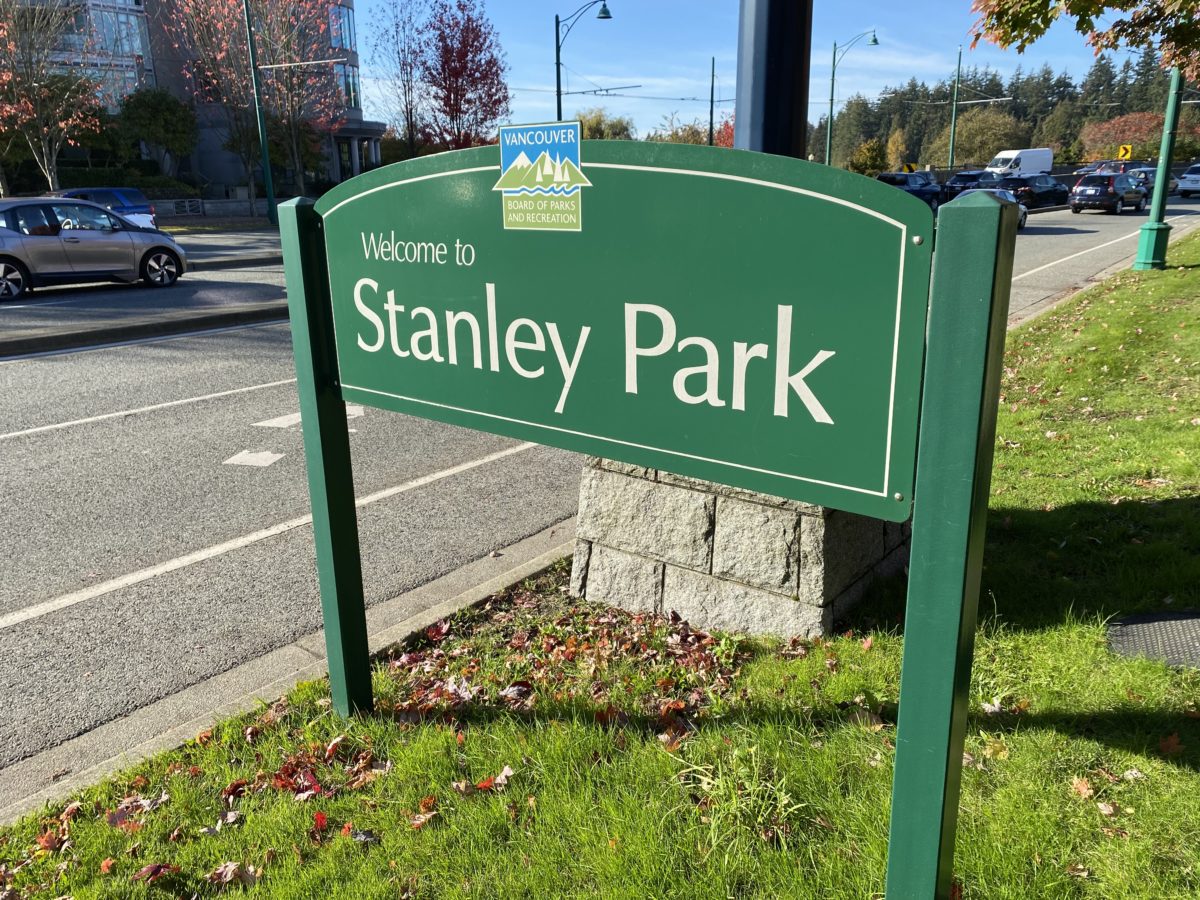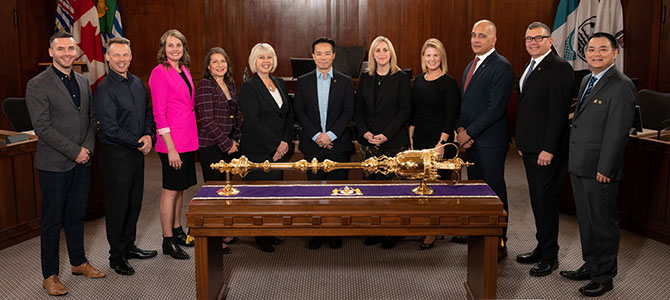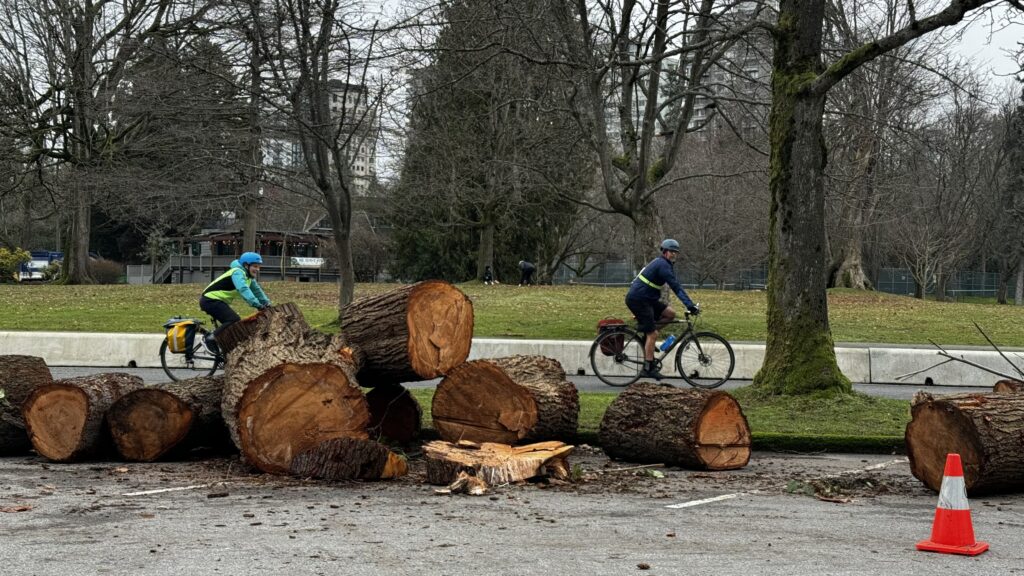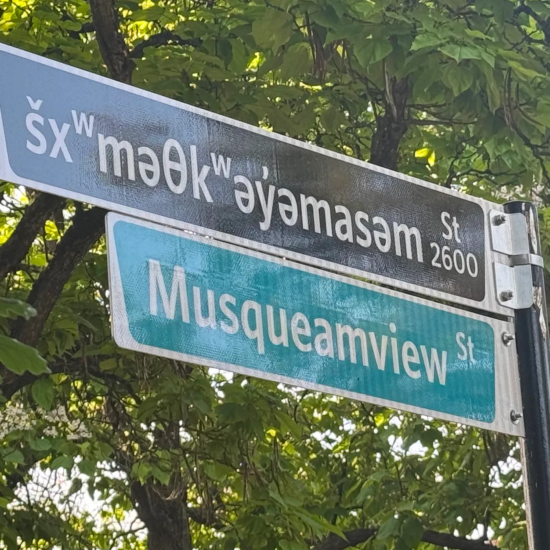
Briefly: The ABC majority city council voted behind closed doors to spend another $11.1 million on logging Stanley Park trees affected by the Hemlock looper moth infestation.
In July, four citizens sued city hall, the park board and their contractor for negligence due to the secretive operation to cut down 160,000 trees.
Bob Mackin
The ABC majority Vancouver city council decided in a secret meeting to spend another $11.1 million on logging more than a quarter of Stanley Park’s trees, theBreaker.news has learned.

Vancouver city council, led by Mayor Ken Sim (centre) (City of Vancouver)
A confidential June 3 memo to park board commissioners said councillors unanimously consented to a May 28 “budget adjustment” motion to get rid of more trees killed by the Hemlock looper moth infestation.
The motion, in financial planning director Natalie Froehlich’s memo, read: “That council approve the one-time 2024 operating budget increase of $11.1 million for the Vancouver Board of Parks and Recreation to fund the next phase of immediate work required to mitigate safety risks from dead trees caused by the Hemlock looper moth within Stanley Park, to be funded from the general revenue stabilization reserve.”
The total budget is now $18 million.
The memo is contained in documents filed by the city in B.C. Supreme Court in response to Save Stanley Park’s July 11 lawsuit. A hearing is scheduled for Sept. 16.
The plaintiffs — software developer Michael Robert Caditz and homemaker Katherine Caditz, holistic health educator Anita Hansen and schoolteacher Jillian Maguire — accuse the City of Vancouver, park board, urban forestry manager Joe McLeod and contractor B.A. Blackwell and Associates of negligence.

From the May 27, 2024 park board closed door meeting (CoV/B.C. Supreme Court)
The city responded Sept. 9, denying the negligence allegation. Instead, it said it acted in the interest of public safety, followed all city spending authority and procurement rules and that staff consulted politicians.
Last November, the city announced it would cut down 160,000 trees affected by the moth and drought, for fear that trees would fall on people and vehicles and be consumed by a wildfire. Yet, it did not publicly release B.A. Blackwell’s report justifying the operation until February.
As of April, crews logged only 7,201 trees — 50.8% of which are over 20 centimetres in diameter. The city claims it has planted 25,000 seedlings, including western red cedar, Douglas fir, grand fir, Sitka spruce and red alder. Logging is scheduled to resume in October and carry on through March.
The plaintiffs argue there was never a motion at a public park board meeting to direct staff to spend millions of dollars to remove trees from Stanley Park nor was there a motion in an open meeting to approve any contract with B.A. Blackwell or to hire logging subcontractors.
“Had such public hearing transpired, then experts with alternate recommendations and any conflicting scientific evidence would have had an opportunity to be heard,” the lawsuit claims.
The plaintiffs claim the tree removal operation has resulted in muddy trails, previously secluded or shaded areas being subject to sunlight and heat and increased traffic noise and exposure to roadways. Also, the sights and sounds of heavy machinery that emit diesel exhaust.
The result, the four plaintiffs claim, is that the logging has harmed their mental health and caused them physical discomfort.
The city’s defence filing points to the July 10, 2023 park board resolution that directed staff to develop a risk mitigation plan to remove dead trees from Stanley Park, “including estimated costs and implementation timelines of any recommended actions.”
In August 2023, while city council was on summer hiatus, deputy city manager Karen Levitt approved $2.1 million in emergency spending for B.A. Blackwell to undertake the first phase of logging. City council rubber-stamped another $4.9 million at an open meeting last January.

Cyclists pass sections of logged trees in the parking lot near Ceperley Park Playground in Stanley Park (Bob Mackin photo)
In June of this year, staff awarded B.A. Blackwell another contract, worth $2.76 million plus taxes, through April 15, 2025, with an option to extend to the end of June 2025.
Staff made presentations to closed-door park board meetings held Feb. 5, March 27 and May 27. The latter meeting was the day before city council’s secret $11.1 million approval.
Civic lawyer Iain Dixon’s filing said the negligence lawsuit should be thrown out because the plaintiffs do not meet the legal test for an injunction.
“Even if the plaintiffs were able to convince this court that a duty of care exists in these circumstances, the park board would be shielded from liability on the basis that the decision to engage in this work was a policy and not an operational one,” said the city’s defence statement.
Support theBreaker.news for as low as $2 a month on Patreon. Find out how. Click here.










